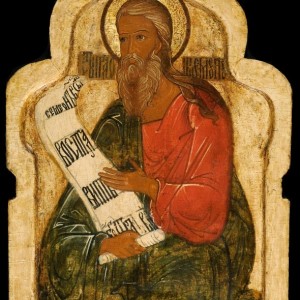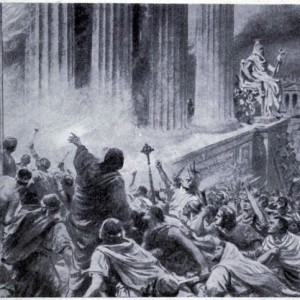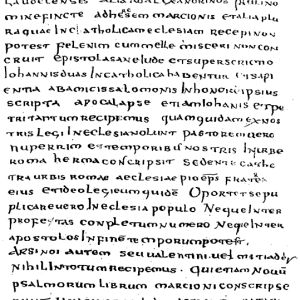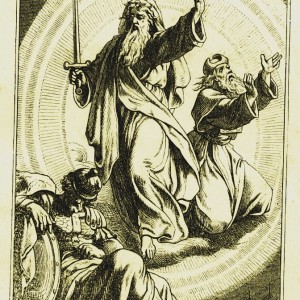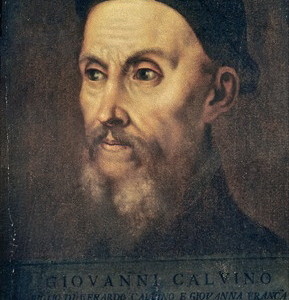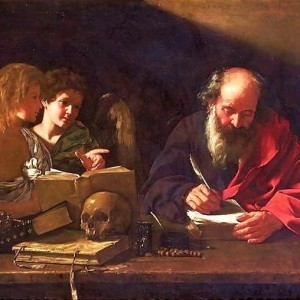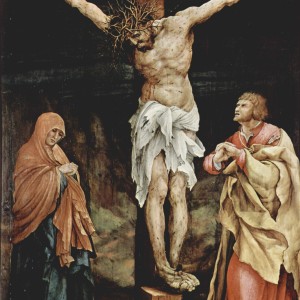Russian Icon, The Prophet Simeon, (17th c.) Here’s an anti-Biblical myth that many Protestants hold to, without knowing it: a belief in a so-called “intertestamental period” or “400 years of silence,” in which God allegedly (and inexplicably) ceased communicating with His People between roughly 400 or 450 B.C. and the Incarnation of Christ. GotQuestions? describes… Continue reading Was Christ’s Birth Preceded by 400 Years of Divine Silence?
Tag: deuterocanon
The Caliph’s Catch-22: Protestant Arguments Against the “Apocrypha”
There’s a story (probably legendary) about the destruction of the great Library of Alexandria: John the Grammarian, a Coptic priest living in Alexandria at the time of the Arab conquest in 641 AD, came to know ‘Amr, the Muslim general who conquered the city. The men were each other’s intellectual peers, and John became the… Continue reading The Caliph’s Catch-22: Protestant Arguments Against the “Apocrypha”
Why Not 66: Answering Brian Edwards’ Arguments for the Protestant Canon (Pt. II)
This is the second part of my response to Evangelical theologian Brian Edwards’ case for the 66-Book Protestant canon, “Why 66?” Yesterday, I answered three of Edwards’ major claims: that the Deuterocanon was rejected by the early Jews, by Jesus and the Apostles, and that the Septuagint at the time of Christ probably “did not include” the… Continue reading Why Not 66: Answering Brian Edwards’ Arguments for the Protestant Canon (Pt. II)
Why Not 66: Answering Brian Edwards’ Arguments for the Protestant Canon (Pt. I)
Brian Edwards In continuing my search for a principled basis for the Protestant canon of Scripture, I found what looked to be the perfect fit. It’s a talk called “Why 66?,” an hour long presentation by the Evangelical theologian Brian Edwards, which sought to answer, for a Protestant audience: (I, 6:37). “So what is the… Continue reading Why Not 66: Answering Brian Edwards’ Arguments for the Protestant Canon (Pt. I)
The Deuterocanon and the Communion of Saints
If Catholics are right about the Books that make up the Bible, then we’re also right about the Communion of Saints. In fact, if the Second Book of Maccabees is true (whether or not the Book is inspired Scripture), then the Catholic doctrines on the Communion of the Saints are true, as well. How can… Continue reading The Deuterocanon and the Communion of Saints
Is Scripture Self-Attesting?
One of the most glaring problems within Protestantism is on the authority of the Bible: how do we know which Books are sacred Scripture? How can a Christian possibly know which Books belong in the Christian Holy Book without learning this from the Christian Church? Titian, John Calvin (16th c.) As Catholics, we’d argue that… Continue reading Is Scripture Self-Attesting?
Defending the Deuterocanon, Book by Book (Part II)
On Tuesday, we explored why we Catholics have Tobit, Judith, Wisdom, and a longer version of Esther in our Bibles. Today, we’ll discuss why we have the other Deuterocanonical books: Sirach, Baruch, 1st and 2nd Maccabees, and the longer version of Daniel. V. Sirach (Ecclesiasticus) The Book was Probably Referenced by Jesus Christ: Sirach 27:6… Continue reading Defending the Deuterocanon, Book by Book (Part II)
Defending the Deuterocanon, Book by Book (Part I)
Much has been said, here and elsewhere, on why Catholics have 73 Books in our Bibles, instead of the mere 66 that our Protestant brethren have, or why we have longer versions of Daniel and Esther than Protestants. The Books in question, the Deuterocanon, are often defended as a group, as I did against arguments… Continue reading Defending the Deuterocanon, Book by Book (Part I)
Which Books Were in Early Christian Bibles?
What canon of Scripture did the earliest Christians use? A Protestant going by the handle Lojahw (Lover of Jesus and His word) argues that it was the modern Protestant Bible. Specifically, he claimed that: Bartolomeo Cavarozzi, St. Jerome in His Study (1617) There were at least nine church fathers from the second through the fourth centuries… Continue reading Which Books Were in Early Christian Bibles?
Good Friday
Behold, my servant shall prosper, he shall be exalted and lifted up, and shall be very high. As many were astonished at him — his appearance was so marred, beyond human semblance, and his form beyond that of the sons of men — so shall he startle many nations; kings shall shut their mouths because… Continue reading Good Friday
